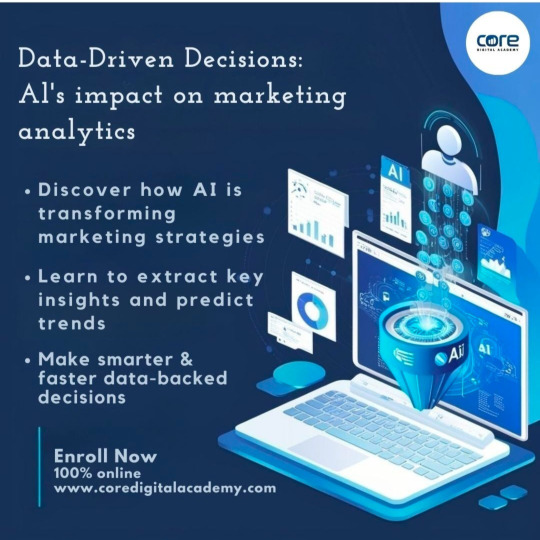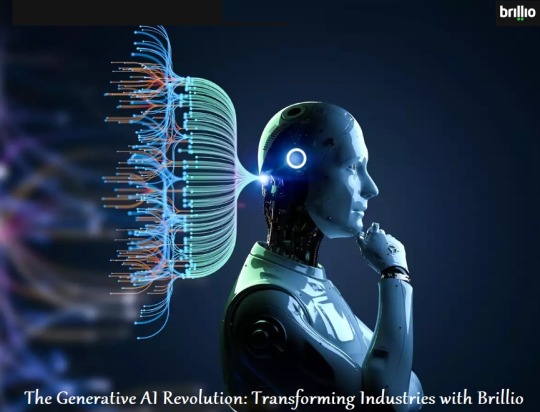#learn google analytics
Explore tagged Tumblr posts
Text
Best Digital Marketing Institute in Noida: Your Gateway to a Thriving Career
In today’s fast-paced digital era, having expertise in digital marketing is not just an advantage—it’s a necessity. Whether you’re a fresh graduate aiming to build a promising career or a working professional seeking to upgrade your skills, finding the Best Digital Marketing Institute in Noida can set you on the right path. But what makes an institute the “best,” and how do you choose one that aligns with your goals? Let’s dive deeper into this topic.
Why Noida Is a Hub for Digital Marketing Learning
Noida, a bustling part of the Delhi NCR region, has emerged as a hotspot for digital innovation and education. The city boasts a vibrant ecosystem of tech companies, startups, and creative agencies. With the demand for skilled digital marketers skyrocketing, the presence of the Best Digital Marketing Institute in Noida bridges the gap between theoretical knowledge and practical industry demands.
The Rising Importance of Digital Marketing
Digital marketing has transformed how businesses connect with their audiences. From social media marketing to search engine optimization (SEO), pay-per-click advertising (PPC), and email campaigns, every aspect of digital marketing demands specialized knowledge. Here’s why it matters:
Increased Demand for Professionals: Companies are shifting to online platforms, leading to a surge in demand for skilled marketers.
Diverse Career Opportunities: Digital marketing opens doors to roles like SEO analyst, content strategist, social media manager, and performance marketer.
High Earning Potential: A certified digital marketer enjoys lucrative salary packages and growth opportunities.
Enrolling in the Best Digital Marketing Institute in Noida ensures you acquire the skills to stand out in this competitive field.
What Makes an Institute the Best?
When choosing the Best Digital Marketing Institute in Noida, consider the following factors:
Comprehensive Curriculum: A good institute covers all aspects of digital marketing, including SEO, PPC, content marketing, email marketing, and analytics.
Experienced Trainers: Look for institutes with trainers who have real-world industry experience.
Hands-on Learning: Practical projects and internships are crucial for applying theoretical concepts.
Industry Certification: Certifications from recognized platforms like Google, HubSpot, and Facebook add value to your resume.
Placement Assistance: The best institutes offer placement support and help connect you with leading companies.
Top Benefits of Joining the Best Digital Marketing Institute in Noida
Skill Development: Gain expertise in tools like Google Analytics, SEMrush, and HubSpot.
Networking Opportunities: Interact with industry experts and peers to expand your professional network.
Flexibility: Most institutes offer weekend or online classes, making it convenient for working professionals.
Job Readiness: Practical training and case studies prepare you for real-world challenges.
Real Success Stories
Many students who have completed courses from the Best Digital Marketing Institute in Noida have landed impressive roles in top companies. The transformation from a novice to a skilled professional is a testament to the quality of training these institutes offer.
How to Choose the Best Digital Marketing Institute in Noida
To make the right choice, follow these steps:
Research: Read reviews, testimonials, and course details online.
Visit the Institute: Check the facilities, meet the trainers, and get a feel of the learning environment.
Compare Fee Structures: While quality training is an investment, compare the fees to find an institute that fits your budget.
Ask About Placements: Enquire about the success rate and the companies where alumni are placed.
Why Choose Noida for Digital Marketing Training?
Noida offers unmatched advantages:
Proximity to Delhi NCR: Access to numerous job opportunities in one of the country’s largest job markets.
Thriving Industry Presence: Work on live projects with startups and established firms.
Affordable Cost of Living: Compared to metros, Noida is cost-effective for students and professionals.
Future Prospects for Digital Marketers
With the rise of AI, voice search, and advanced analytics, the scope of digital marketing is ever-expanding. Enrolling in the Best Digital Marketing Institute in Noida ensures that you’re equipped to stay ahead in this dynamic industry.
#Institutes in Noida#SEO and PPC Classes#Top Digital Institutes#Learn Google Analytics#Digital Marketing Jobs
0 notes
Text
Top Data Science Courses With Certificate ⬇️
1-IBM Data Science Professional Certificate
https://imp.i384100.net/YgYndj
2-Google Data Analytics Professional Certificate
https://imp.i384100.net/x9jAxk
3-Google Data Analytics Professional Certificate
https://imp.i384100.net/x9jAxk
4-Introduction to Data Science Specialization
https://imp.i384100.net/Ryqyry
5-Applied Data Science with Python Specialization
https://imp.i384100.net/GjkEPn
6-Google Advanced Data Analytics Professional Certificate
https://imp.i384100.net/1r5E3B
7-What is Data Science?
https://imp.i384100.net/JzmRaN
8-Data Science Specialization
https://imp.i384100.net/BX9BmB
9-Python for Data Science, AI & Development
https://imp.i384100.net/g1ARWv
10-Foundations of Data Science
https://imp.i384100.net/nL2Wza
11-IBM Data Analyst Professional Certificate
https://imp.i384100.net/jWGKxa
12-Machine Learning Specialization
https://imp.i384100.net/k0gLAV

#courses#coursera#google#data analytics#jobs#dataanalytics#dataanalysis#data science#data analyst jobs#data analysis#datascientist#machine learning#free courses#courses with certification#online courses
17 notes
·
View notes
Text
Google Analytics Tutorial - Learn Google Analytics in 3 Hours [FULL COURSE]
Google Analytics Tutorial – Learn Google Analytics in 3 Hours [FULL COURSE] Timestamps: 00:00:00 – Introduction 00:08:08 … source
0 notes
Text

Introducing Bengaluru’s 1st Agency-Based Digital Marketing Program by Core Digital Academy
Looking to break into the world of digital marketing with hands-on experience and expert mentorship? Join our comprehensive 3-month program designed to equip you with industry-relevant skills through real-time agency-based learning.
✅ Learn Google Ads, SEO, Analytics, WordPress & more ✅ Get mentored by industry professionals ✅ Earn a certificate of completion ✅ Blend of online & offline sessions ✅ Personalized guidance for career building
Whether you’re a student, fresher, or professional looking to upskill, this is your launchpad to a thriving digital career.
📞 Limited slots available – Enquire now: +91 91108 53138 📍 Core Digital Academy – Empowering Future Marketers
#📢 Introducing Bengaluru’s 1st Agency-Based Digital Marketing Program by Core Digital Academy#Looking to break into the world of digital marketing with hands-on experience and expert mentorship?#Join our comprehensive 3-month program designed to equip you with industry-relevant skills through real-time agency-based learning.#✅ Learn Google Ads#SEO#Analytics#WordPress & more#✅ Get mentored by industry professionals#✅ Earn a certificate of completion#✅ Blend of online & offline sessions#✅ Personalized guidance for career building#Whether you’re a student#fresher#or professional looking to upskill#this is your launchpad to a thriving digital career.#📞 Limited slots available – Enquire now: +91 91108 53138#📍 Core Digital Academy – Empowering Future Marketers#Hashtags:#CoreDigitalAcademy#DigitalMarketingCourse#AgencyBasedLearning#MarketingCareers#UpskillNow#GoogleAds#SEOTraining#WordPressLearning#BengaluruCourses#LearnFromExperts#CORE DIGITAL ACADEMY ALL POSTERS (1).jpg
0 notes
Text
Inteligencia Artificial: El Motor de la Nueva Era del Análisis de Datos
Introducción: De Datos Crudos a Decisiones Inteligentes Gracias a la IA Vivimos en una era de información sin precedentes. Las organizaciones generan y recopilan volúmenes masivos de datos cada segundo. Sin embargo, estos datos son solo potencial en bruto. El verdadero valor reside en la capacidad de analizarlos para extraer conocimientos, identificar patrones, predecir tendencias y, en última…
#Alteryx#Análisis de Datos#Analítica Aumentada#Analítica Predictiva#AutoML#Azure ML#BI#Big Data#Business Intelligence#Ciencia de Datos#Data Mining#Domo#Google#IA#IBM#IBM Watson#inteligencia artificial#Looker#machine learning#Microsoft#MicroStrategy#Oracle#Oracle Analytics#Palantir Technologies#Power BI#Qlik#RapidMiner#SAP#SAP Analytics Cloud#SAS Institute
0 notes
Text
🚀 Master Facebook Marketing in Just 15 Days! 🔥Course By Dipak Paneru
🚀 Master Facebook Marketing in Just 15 Days! 🔥
Want to grow your business, boost engagement, and run successful Facebook ads? Our 15-Day Facebook Marketing Course is here to help you dominate the platform! ✅
📌 What You’ll Learn: ✔️ Setting Up & Optimizing a Business Page ✔️ Crafting Engaging Content & Visuals ✔️ Facebook Ads & Advanced Targeting ✔️ Retargeting & Facebook Pixel Strategies ✔️ Organic Growth & Audience Engagement ✔️ Analytics & Performance Optimization ✔️ Monetization & Facebook Shop Setup
💡 Who Should Join? ✅ Business Owners & Entrepreneurs ✅ Digital Marketers & Freelancers ✅ Social Media Enthusiasts
🚀 Get Expert Guidance, Exclusive Resources & Certification!
📲 Enroll Now! Limited Seats Available! 👇 📞 Call/WhatsApp: +9779860771561 📩 Email: [email protected] 🌐 Visit: www.dipakpaneru.com.np
#FacebookMarketing #SocialMediaGrowth #DigitalMarketing #LearnFacebookAds #MarketingSuccess
#best digital marketer in nepal#digital branding nepal#digital marketing expert nepal#google business profile expert nepal#google my business setup nepal#google business profile optimization nepal#facebook marketing course#facebook marketing training#best facebook marketing course#facebook ads course#learn facebook marketing#facebook business page training#social media marketing course#digital marketing with facebook#facebook advertising course#facebook ads training#facebook marketing tutorial#facebook marketing for beginners#facebook ad strategies#advanced facebook marketing#how to run facebook ads#facebook ads targeting#facebook engagement strategies#facebook business growth#best facebook advertising tips#facebook content strategy#facebook page optimization#facebook pixel training#facebook ad analytics#social media advertising course
0 notes
Text
youtube
0 notes
Text
Why Should You Take the Google Analytics Course for Digital Marketing?
Understanding your audience and the ability to measure your efforts are crucial when diving into digital marketing. A Google Analytics Course in Ahmedabad equips you with the skills to track website traffic, analyse user behaviour, and make data-driven decisions that will boost your marketing strategies and enhance your online presence.
Master Website Traffic Analysis
Google Analytics Course in Ahmedabad can help you track which page visitors are coming from, land on, and hang around to see, and for how long. You will be shown how to interpret the data, which marketing channels provide the highest return, and how one should adjust the strategy at any given moment. To make sure that you place your time and resources accordingly, invest in those sites that give you the biggest desirable results.
Understand Audience Demographics
Knowing who the audience is, including basic information such as age, location, and interests, will enable them to produce content that helps fulfil their needs. It is for this reason that a Google Analytics Course in Ahmedabad will enable you to show how you can access information about the demographics of these individuals in order to know how best to create appropriate campaigns targeting them and how to better engage them with your message.
Enhance Conversion Tracking
Conversions, such as signing up for newsletters or buying a product, are important gauges of your marketing performance. With a Google Analytics course, you will be taught how to set up and track goals, showing you how your website effectively converts visitors into customers. It helps you understand and further improve your site for better conversion rates.
Improve Content Performance
Not all content is created equal. Certain pages and information draw in visitors, motivating them to spend much more time than others do. Knowing the ins and outs of how to use Google Analytics assesses which content best stimulates interest and why. Having that insight into the strengths will help you develop materials later on that really resonate with your audience and meet your marketing goals.
Enhance Your Career Prospects
In the modern job scenario, Google Analytics is one of the skills in high demand in the digital marketing professional workforce today. Completing the course will not only upgrade your capability but also add a crucial certification to your resume and make you more competitive.
Time to take your digital marketing one step ahead? Then why not enroll in Perfect Computer Education's Google Analytics course in Ahmedabad and see the magic of transforming your data into actionable insights? Visit our website to enrol in this course.
Read More:- https://perfecteducation.net/why-should-you-take-the-google-analytics-course-for-digital-marketing.php
#digital marketing course in ahmedabad#foreign accounting training#learn accounting in ahmedabad#usa accounting training#myob training#quickbook training ahmedabad#foreign accounting and taxation training#xero training in ahmedabad#tally certification in ahmedabad#learn foreign accounting ahmedabad#Google Analytics Course
1 note
·
View note
Text
Master Digital Marketing Without an MBA
🚀 Ready to conquer the digital marketing world, one campaign at a time! From mastering Google Skillshop to crafting creative strategies for startups, I’m diving deep into the art and science of marketing. Follow along as I share tips, tools, and my journ
So, here I am. Sitting at my desk, armed with a laptop and a double shot of self-doubt. I want to conquer the digital marketing world, but there’s this nagging voice in my head: “You’re not an MBA. Who are you kidding?” Sound familiar? Great, then you’re in the right place. Let’s get one thing straight: MBAs are cool. But so are self-taught, scrappy, AI-savvy folks like us. Here’s the game…
#AI in marketing#analytics and reporting#beginner&039;s guide to digital marketing#consistent learning#content marketing#CRM tools#data-driven campaigns#digital marketing#digital marketing portfolio#digital marketing roadmap#e-commerce campaigns#EdTech marketing#Google Skillshop#HubSpot Academy#influencer marketing#LinkedIn networking#marketing strategies#Meta Blueprint#personal branding#self-taught marketing#SEO basics#small business SEO#social media marketing#startup marketing
0 notes
Text

🚀 Step Into the World of Digital Marketing with DMA Digital Marketing Academy! 🌟 💡 Ready to start your digital career and explore endless opportunities? With DMA, you'll build the foundation for success, learn cutting-edge strategies, and earn globally recognized certifications. 🎯 What You'll Learn: ✅ Master essential skills like SEO, SMM, SEM, Email Marketing, and Analytics. ✅ Understand consumer behavior and spot trends. ✅ Create data-driven campaigns that deliver impactful results. 🎓 Get Certified in: ⭐ Google Ads | ⭐ HubSpot Content Marketing ⭐ Facebook Blueprint | ⭐ Hootsuite Social Marketing ⭐ Google Analytics 💼 Why Wait? Take the Success Path Today! 📞 Call us now at: +91-9045922719 | +91-8077561199 📢 Let DMA Digital Marketing Academy guide you toward your dream career. Your success starts NOW! 🚀 #meerut #dmamidas #midaspiyush #seo #smo #job #Digital_marketing #institute_in_meerut #best_digital_marketing_institute_in_meerut #digital_career #SEM #google_ads
#🚀 Step Into the World of Digital Marketing with DMA Digital Marketing Academy! 🌟#💡 Ready to start your digital career and explore endless opportunities? With DMA#you'll build the foundation for success#learn cutting-edge strategies#and earn globally recognized certifications.#🎯 What You'll Learn:#✅ Master essential skills like SEO#SMM#SEM#Email Marketing#and Analytics.#✅ Understand consumer behavior and spot trends.#✅ Create data-driven campaigns that deliver impactful results.#🎓 Get Certified in:#⭐ Google Ads | ⭐ HubSpot Content Marketing#⭐ Facebook Blueprint | ⭐ Hootsuite Social Marketing#⭐ Google Analytics#💼 Why Wait? Take the Success Path Today!#📞 Call us now at: +91-9045922719 | +91-8077561199#📢 Let DMA Digital Marketing Academy guide you toward your dream career. Your success starts NOW! 🚀#meerut#dmamidas#midaspiyush#seo#smo#job#Digital_marketing#institute_in_meerut#best_digital_marketing_institute_in_meerut#digital_career
0 notes
Text
#data analytics#healthcare#diagnosis#treatment#future#tech help#health tech#google analytics#future trends#technology#branding#follow#programming#machine learning#artificial intelligence#euro 2024#instagood#explore#coding
0 notes
Text
The Nuts and Bolts of Machine Learning | Google Advanced Data Analytics Certificate
This is the sixth of seven courses in the Google Advanced Data Analytics Certificate. In this course, you’ll learn about machine … source
0 notes
Text

Tap into the true potential of your data. Go beyond the website traffic and get in-depth user insights with Google Analytics services. Our Google Analytics service helps you optimize your site, and know your visitors, their activities, and ways to bring them back. To use such services, you know what to do connect with us today! Contact Us: 092570 37105 . . #googleanalytics #website #development #activeuser #analyticsgoal #performance #technicalterms #k2kit #k2k
#artificial intelligence#branding#ecommerce#machine learning#marketing#vegetarian#plantbased#veganfood#google analytics#video analytics#data analytics#business analytics
0 notes
Text
The Generative AI Revolution: Transforming Industries with Brillio
The realm of artificial intelligence is experiencing a paradigm shift with the emergence of generative AI. Unlike traditional AI models focused on analyzing existing data, generative AI takes a leap forward by creating entirely new content. The generative ai technology unlocks a future brimming with possibilities across diverse industries. Let's read about the transformative power of generative AI in various sectors:
1. Healthcare Industry:
AI for Network Optimization: Generative AI can optimize healthcare networks by predicting patient flow, resource allocation, etc. This translates to streamlined operations, improved efficiency, and potentially reduced wait times.
Generative AI for Life Sciences & Pharma: Imagine accelerating drug discovery by generating new molecule structures with desired properties. Generative AI can analyze vast datasets to identify potential drug candidates, saving valuable time and resources in the pharmaceutical research and development process.
Patient Experience Redefined: Generative AI can personalize patient communication and education. Imagine chatbots that provide tailored guidance based on a patient's medical history or generate realistic simulations for medical training.
Future of AI in Healthcare: Generative AI has the potential to revolutionize disease diagnosis and treatment plans by creating synthetic patient data for anonymized medical research and personalized drug development based on individual genetic profiles.
2. Retail Industry:
Advanced Analytics with Generative AI: Retailers can leverage generative AI to analyze customer behavior and predict future trends. This allows for targeted marketing campaigns, optimized product placement based on customer preferences, and even the generation of personalized product recommendations.
AI Retail Merchandising: Imagine creating a virtual storefront that dynamically adjusts based on customer demographics and real-time buying patterns. Generative AI can optimize product assortments, recommend complementary items, and predict optimal pricing strategies.
Demystifying Customer Experience: Generative AI can analyze customer feedback and social media data to identify emerging trends and potential areas of improvement in the customer journey. This empowers retailers to take proactive steps to enhance customer satisfaction and loyalty.

3. Finance Industry:
Generative AI in Banking: Generative AI can streamline loan application processes by automatically generating personalized loan offers and risk assessments. This reduces processing time and improves customer service efficiency.
4. Technology Industry:
Generative AI for Software Testing: Imagine automating the creation of large-scale test datasets for various software functionalities. Generative AI can expedite the testing process, identify potential vulnerabilities more effectively, and contribute to faster software releases.
Generative AI for Hi-Tech: This technology can accelerate innovation in various high-tech fields by creating novel designs for microchips, materials, or even generating code snippets to enhance existing software functionalities.
Generative AI for Telecom: Generative AI can optimize network performance by predicting potential obstruction and generating data patterns to simulate network traffic scenarios. This allows telecom companies to proactively maintain and improve network efficiency.
5. Generative AI Beyond Industries:
GenAI Powered Search Engine: Imagine a search engine that understands context and intent, generating relevant and personalized results tailored to your specific needs. This eliminates the need to sift through mountains of irrelevant information, enhancing the overall search experience.
Product Engineering with Generative AI: Design teams can leverage generative AI to create new product prototypes, explore innovative design possibilities, and accelerate the product development cycle.
Machine Learning with Generative AI: Generative AI can be used to create synthetic training data for machine learning models, leading to improved accuracy and enhanced efficiency.
Global Data Studio with Generative AI: Imagine generating realistic and anonymized datasets for data analysis purposes. This empowers researchers, businesses, and organizations to unlock insights from data while preserving privacy.
6. Learning & Development with Generative AI:
L&D Shares with Generative AI: This technology can create realistic simulations and personalized training modules tailored to individual learning styles and skill gaps. Generative AI can personalize the learning experience, fostering deeper engagement and knowledge retention.
HFS Generative AI: Generative AI can be used to personalize learning experiences for employees in the human resources and financial services sector. This technology can create tailored training programs for onboarding, compliance training, and skill development.
7. Generative AI for AIOps:
AIOps (Artificial Intelligence for IT Operations) utilizes AI to automate and optimize IT infrastructure management. Generative AI can further enhance this process by predicting potential IT issues before they occur, generating synthetic data for simulating scenarios, and optimizing remediation strategies.
Conclusion:
The potential of generative AI is vast, with its applications continuously expanding across industries. As research and development progress, we can expect even more groundbreaking advancements that will reshape the way we live, work, and interact with technology.
Reference- https://articlescad.com/the-generative-ai-revolution-transforming-industries-with-brillio-231268.html
#google generative ai services#ai for network optimization#generative ai for life sciences#generative ai in pharma#generative ai in banking#generative ai in software testing#ai technology in healthcare#future of ai in healthcare#advanced analytics in retail#ai retail merchandising#generative ai for telecom#generative ai for hi-tech#generative ai for retail#learn demystifying customer experience#generative ai for healthcare#product engineering services with Genai#accelerate application modernization#patient experience with generative ai#genai powered search engine#machine learning solution with ai#global data studio with gen ai#l&d shares with gen ai technology#hfs generative ai#generative ai for aiops
0 notes
Text

#google machine learning#data management and integration#ai for analytics london#AI-Powered Business Services
1 note
·
View note
Video
youtube
4: Spark-Fault Tolerance with In Memory Computing #spark #python #learni...
#youtube#spark#learning#python#programming#datascience#data analytics#data#dataengineer#analysis#google analytics#databricks
0 notes